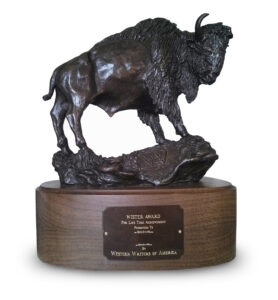Vietnam’s Second Front: Domestic Politics, The Republican Party, and The War
by Andrew L. Johns, University Press of Kentucky, 2010
War, Von Clausewitz famously wrote, “is not merely a political act, but also a real political instrument, a continuation of political commerce, a carrying out of same policy by other means.” He went on to say, in his famed 1832 military treatise, On War, that war “always starts from a political condition, and is called forth by a political motive. It is, therefore, a political act.”
The Vietnam War was no exception to either of those aphorisms—in fact, the way the United States waged the war in Vietnam had as much to do with domestic politics as it did with any threat to national interest. Countless numbers of books have dissected just about every imaginable aspect of how American domestic politics influenced the way Presidents Truman, Eisenhower, Kennedy, Johnson, Nixon and Ford waged war in Vietnam.
Could there possibly be anything new to add to that voluminous analytical list? With Andrew L. Johns’ Vietnam’s Second Front, the answer, surprisingly, is yes. Johns, an assistant professor of history at Brigham Young, came up with a unique way to look at the politics of that most political of wars. He focused on the role of Congress, public opinion, and above all, the Republican Party, in the making of Vietnam War policy, especially during the Kennedy, Johnson and Nixon administrations.
His book, Johns says, looks at “how the Republican Party played a crucial role in the process of policy formation and execution, the nature of the imperial presidency and its relationship with Congress, and the remarkably consistent behavior of three consecutive administrations in dealing with the conflict.” Johns postulates, and goes a long way toward proving, that those three presidents’ preoccupation with domestic political considerations and calculations in their Vietnam War decision-making (the titular “second front” of the war) led directly to their failed policies in the war.
Johns looks closely at the Republican Party’s Vietnam War era leaders, politicians and grassroots organizations, focusing on five areas: the hawk-dove divisions within the GOP; the frequent failures of the three presidents to overcome congressional opposition to Vietnam War policies; Congress’ “complicity” in the war; the similarities of Vietnam War policies of the three very different presidents; and Johns’ main point: the role played by what he calls “domestic political considerations—public opinion— electoral calculations, personal credibility” in foreign affairs in general, and in Vietnam, in particular.
Johns makes a convincing case that the Republicans “exerted significant influence” on U.S. policy in Vietnam in all three presidential administrations, primarily in the hawkish direction. The GOP, Johns concludes, “acted as a pillar of support for all the presidents in the Vietnam era.” In all three presidents’ cases—even Nixon’s—the fear of appearing “soft on communism” and “losing Vietnam” strongly motivated all of their big Vietnam War decision making. “Even Richard Nixon,” Johns notes, “the archetypical anti-Communist, worried about charges of being soft on Vietnam.”
Originally published in the April 2010 issue of Vietnam. To subscribe, click here.




